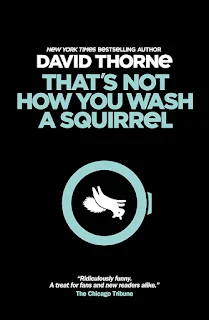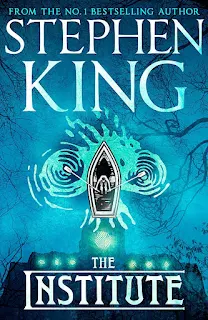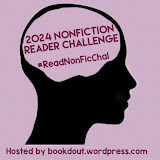* Copy courtesy of Hachette *
It's 1896 and Florence Granger is helping her father in the family business Granger's Bookbinders in Manchester. Florence is disowned when she brings shame upon the family but before her father kicks her out onto the street, Grace intercepts a request from a valued client in Lancashire.
Florence travels to Rose Hall in Lancashire in her father's stead and talks her way into restoring the many rare books held in Lord Francis Belfield's personal library. Her position and standing is precarious, but her secret soon pales against the goings on at Rose Hall. Lord Belfield is a widower and it's not long before Florence becomes curious about his wife's untimely demise, convinced it wasn't an accident.
What transpires next in The Library Thief by Kuchenga Shenjé is a gothic mystery and upstairs/downstairs whodunnit and I was entertained the entire way. Early on, Florence is attending church when she gains her first real inkling about her local community and standing of the household she now resides in:
"In the first five pews sat the landed gentry with wives in black or navy satins and velvets, the most ostentatious in deep sapphires, emeralds and violets. All the husbands in the same uniform of morning suit with their hats laid next to them beside their well-trained children praying piously or with their eyes fixed ahead. I knew enough to avoid wearing anything made from loud rustling material, but I felt plain and shabby in my grey dress and threadbare shawl. We sat among the staff. Governesses, footmen, maids and gardeners; all clearly sat in order of importance within the small village, and then their own households." Page 20Florence then goes on to acknowledge with some surprise that the social standing of her household in the area must be middling, given their pew position so far back in the church.
I'm a sucker for historical fiction novels about governesses (Mrs England by Stacey Halls) and I'll be loath to shelve this book because then I won't be able to enjoy seeing the cover design on my desk every day. (This happened with The Silent Companions by Laura Purcell too!)
In fact, The Library Thief by Kuchenga Shenjé definitely gave me Stacey Halls and Laura Purcell vibes, but the writing was definitely unique:
"In my experience, men of the cloth were quite learned folk, but something about him irked me. The smell of him, first of all, was somewhere between offal and the dank emissions from the corners of a pond that got no light." Page 86What a description! I really enjoyed the setting at Rose Hall, Florence's relationships with the staff and of course Lord Francis. I love a good upstairs / downstairs tale however Shenjé somehow manages to keep the relationships relatable to today's sensibilities without disrespecting the historical setting.
I loved this description, and immediately felt like it could describe the relationship I enjoy with my husband:
"The jocularity between them was so well-grooved, it made me think of a carpenter bevelling the edges of wood, and the peels of wood curling up, making smooth laughing sounds along the way. They jostled and poked each other with the jokes that only they could make." Page 203The Library Thief by Kuchenga Shenjé has a stunning cover design (the second absolute stand out design this year; the first being The Book of Doors by Gareth Brown) and delivers an historical gothic mystery about secrets, class, race, friendship, love, grief, female agency all wrapped up by a bookbinder poking about and asking questions. Perfect.
It's hard to believe The Library Thief is the author's debut novel, but Kuchenga Shenjé has definitely become an instant auto read for me, easily up there with Laura Purcell and Stacey Halls, highly recommended!








































